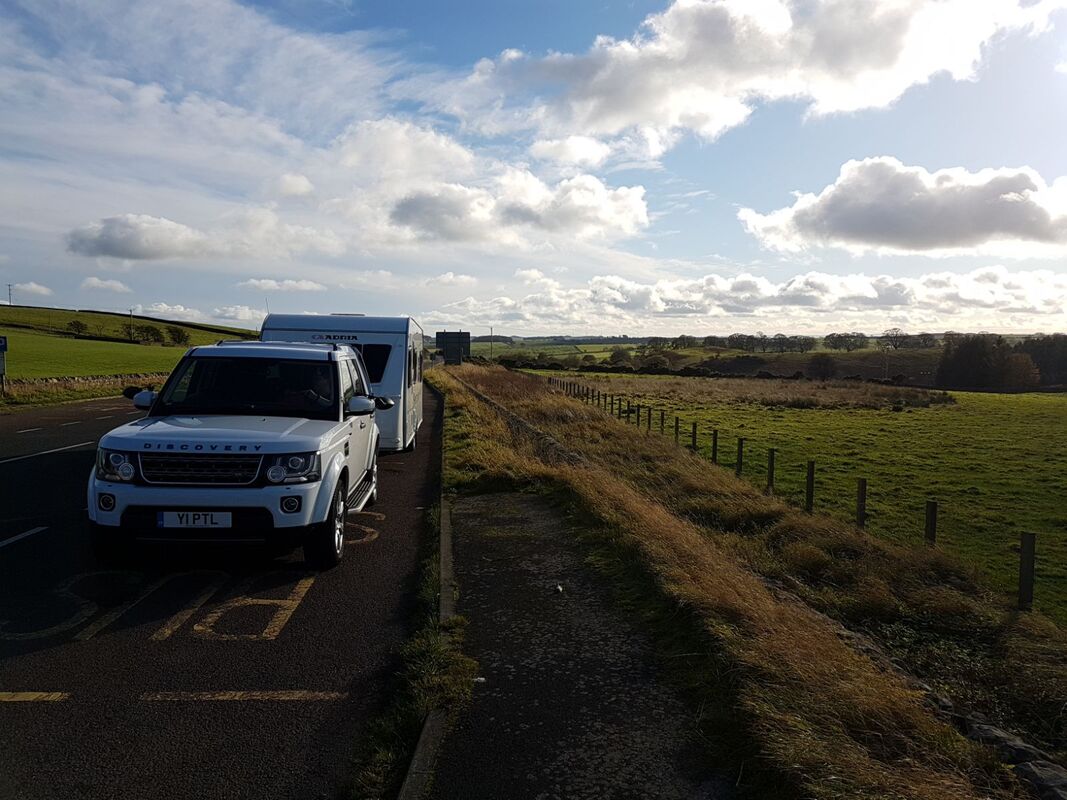- Empty your toilet flush before going on the road. This is a pain, but we have several problems a year with water and toilet chemical slopping out of cisterns; which cause corrosion on the circuit boards, plus there is the added weight of the water to be considered. If you think you may need the toilet on the journey, it is better to take a squirty bottle with some toilet cleaner in it to use as the flush.
- Once on site, set the van up horizontally to be sure that your fridge is level and works correctly. Side to side is most critical as the fluids will not be able to circulate properly. If your fridge is not getting cold, this is often the problem, plus it will work more efficiently.
- Do not overload your van, and try to make it as balanced as possible. This is for your own safety and to make towing easier, plus police do occasionally do spot checks. Often just moving items around helps. Take into account which side your oven and fridge is on, as these obviously add weight. Check your noseweight with scales. Your caravan handbook will list the recommended laden weight. Ensuring this is correct will also increase your fuel economy on your towing vehicle.
- Check the condition of your tyres and the pressure of both your van and car tyres. Poorly maintained tyres, such as cracked side walls, can cause accidents. Inspect tread threads and remember that although a tyre may not be illegal, the extra load imposed by the caravan and the contents can cause it to be dangerous. Remember caravan tyres should be replaced every five years. See if your car manufacturer advises the tyre pressures being adjusted when towing - often they need raising.
- Clean the tow ball and hitch if it has a stabilizer. The ball should be silver and shiny. Use an emery cloth or sandpaper to achieve this. Then keep it clean with either brake and clutch cleaner, paint thinners or petrol; basically any solvent that is not oil based.
- Once on site, uncoil the mains lead fully as this can be a fire risk. When in use, the cable will warm up and if this heat cannot dissipate it will eventually lead to the cable melting and fusing together, possibly even short circuiting and catching fire. If you have excess cable you should always unroll it and lay it out flat on the ground.
- Check the wheel nuts. Missing wheel nuts can cause accidents, as can the wheel nuts not being tightened to the correct torque, causing wheels to become detached while towing. The specific torque setting will be in your caravan’s handbook, or if you have had your van serviced with ourselves, the torque settings will be on your service sheet. Use a torque wrench, not the wheelbrace.
- Turn your gas bottles off before travelling, and ensure they are strapped securely in an upright position. The law requires that they be switched off at the valve on the cylinder when you are towing.
- Check your road lights on the caravan. Make sure the side lights, brake lights, indicators and fog lights are all working before every trip.
- Remember to put your towing mirrors on the car. Ensure that you can see all the way down both sides of the caravan. This is now a legal requirement.
|
Lodge Farm, Lowdham Road
Gunthorpe, Nottingham Nottinghamshire. NG14 7ES |
OPENING HOURS
MON-SAT 10:00-17:30 SUNDAY 10:30-16:30 |
Telephone 0115 966 5797
Fax 0871 971 1044 |

